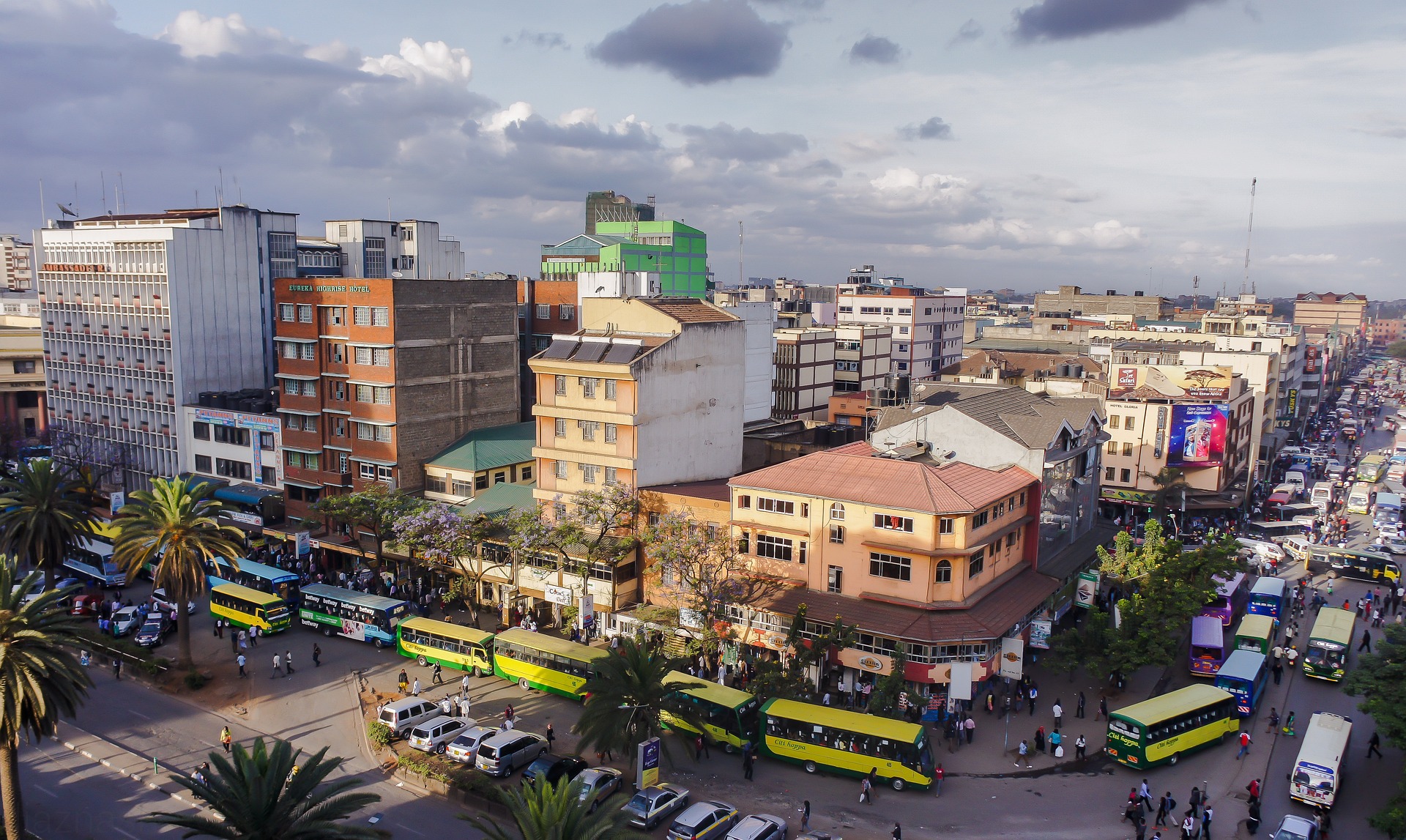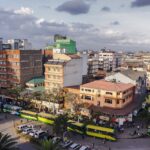
table of contents
Basic information about Kenya
Kenya is the most economically developed country in East Africa. Blessed with rich nature, it is an agricultural country that thrives in exports of coffee, tea, and horticultural crops such as cut flowers. In Japan, the impression of the Maasai people, who were once featured on television and became famous, is probably strong.
Basic data
・Official name: Republic of Kenya
・Population: 53.77 million people (2020)
・Area: 582,646㎢ *47th in the world. Approximately 1.5 times the size of Japan.
・Capital: Nairobi
・Languages: Swahili, English (official languages)
- Ethnic groups: Kikuyu, Luhya, Kalenjin, Luo, Kamba, etc.
・Religion: Traditional religion, Christianity, Islam
・Major industries: agriculture, wholesale, retail, construction, infrastructure development, manufacturing, transportation services, tourism, etc.
(Agriculture) Coffee, tea, horticultural crops, sisal, cotton, corn, pyrethrum
(Industry) Food processing, beer, tobacco, cement, petroleum products, sugar
(mineral) soda ash, fluorite
- Nominal GDP total: $109.8 billion, 62nd in the world, 6th in Africa
・Nominal GDP per capita: $2,204 (143rd in the world, 21st in Africa)
Mombasa has long been a trading hub, and as a port city, it is home to a diverse population of people, including not only locals but also Indians, Omanis, etc. As a gateway to trade in East Africa, it is one of the cities with impeccably developed infrastructure facilities, including aviation and roads.
Kenya and Japan trade situation
・Japan's exports: $1.027 billion
Japan's major export items: automobiles (58.1%), steel (28.4%), general machinery (5.4%)
・Japan's imports: $77 million
Japan's main imports: Raw materials (62.8%), food products (33.7%, coffee, tea, etc.)
There are 89 Japanese corporate bases and 674 Japanese nationals residing in the country.
Export procedures for goods to Kenya
Kenya is one of the countries with relatively strict import regulations. InfoTrade Kenya, a portal site for import and export procedures and requirements run by the Kenya Trade Network Agency, allows you to find out all the necessary permits and procedures by entering the product name and HS code. Let's start by gathering information using this site.
In addition, for items that are required to undergo quality inspection under the Import and Export Law, prior approval from the Export and Import Control Agency is required. Furthermore, for import customs clearance of cargo, exporters and importers to Kenya must submit a prior declaration of cargo information. We have summarized the points you should pay attention to.
Import Restrictions
First, check whether the product you want to export is subject to regulations and whether you can export it if you go through the necessary procedures.
You can check these through JETRO's trade control system.
labeling
Products must be labeled with the following four items as specified by the Kenya Bureau of Standards (KEBS) and must be labeled before shipping. All products must be labeled in English, but the use of other languages is optional.
Manufacturer name
・Registered trademark
・Brand name
·country of origin
Other markings may be required depending on the product.
[Required] Pre-shipment Verification of Conformity (PVoC) System
When exporting to Kenya, all products (except for some exempt items (exempt items from Pre-shipment Verification of Conformity (PVoC))) must be inspected by a designated agency in Japan (the exporting country) and a Certificate of Conformity (CoC), which is one of the required documents for import customs clearance, must be obtained before being shipped.
If PVoC is not implemented in Japan (port of departure) and the goods are shipped, you can apply for a conformity inspection in Kenya by paying a penalty fee. However, if the goods do not meet Kenyan standards, they will be destroyed and confiscated in Kenya (port of import).
Required documents for customs clearance
The following items are required for customs clearance:
・Certificate of Conformity (CoC) issued by a Pre-shipment Verification of Conformity (PVoC) inspection body
・Import Standardization Mark (ISM)
・Commercial invoices from exporting companies
・Proforma invoice from exporting company
・Bill of Lading/Airway Bill (Final waybill is not required for air transport)
・Certificate of Origin
・Purchase orders/contracts
・Packing list
・Letter of credit (if used)
・Taxpayer Identification Number (PIN Certificate)
- Tax exemption certificate (if the product is exempt from tax)
・Freight invoice (for ocean freight)
・Permit/License (if regulated item)
・Vehicle registration (if the cargo is a car)
・Certificate of roadworthiness of vehicle
Depending on the product, some items may not be necessary, but be sure to check that you have prepared the above items.
Customs Clearance
(1) After receiving the pro forma invoice, the importer must ask the customs broker to submit an import declaration. The importer will then send the import declaration to the supplier (exporter) for pre-shipment inspection.
(2) The customs broker prepares an import declaration and sends a customs payment slip to the importer. The importer pays the customs duty at the bank and sends the bank receipt to the customs broker.
(3) The customs broker presents the goods file to the customs office for verification.
(4) If the verification reveals no problems with all import declarations, the goods will be released through customs.
(Quoted from JETRO)
Obtaining Import Standardization Mark (ISM)
This is a product certification system that must be affixed to all imported products (excluding exceptions) intended for sale in Kenya. It guarantees that imported products meet Kenya's quality and technical standards, and protects the safety, health, and environment of Kenyan consumers. The following procedures are required to obtain the certification.
(1) At the import point (Kenya), submit an application to the Kenya Bureau of Standards (KEBS) with the following documents prior to customs clearance.
①Certificate of Conformity (CoC)
②Customs Declaration Form
③Import Declaration Fee (IDF)
④ Copy of packing list
(2) Pasting
Once you submit your application, you will receive your ISM within 2 business days. It must be affixed to each and every item.
However, there are exceptions in the following cases:
Exception 1: For everyday consumable items that move quickly, such as knives and forks on a tray.
→You can stick it on the tray instead.
Exception 2: When the product area is too small to affix the mark.
→ It can be affixed to packages containing multiple units (provided the retail price of each unit does not exceed 25Ksh).
Summary of Kenyan trade and export basics
In trade with Kenya, automobile exports from Japan are thriving. Although there are many complicated procedures, such as obtaining ISM, Kenya is one of Japan's most important trading countries for trade with Africa, and the demand for automobiles and machinery is expected to continue to increase in the future. This site also introduces other countries, so please take a look.
category:African export business
Related articles
-

Basic information on Moroccan trade and exports (overview and basic statistics)
-

Basic information on Algerian trade and exports (overview and basic statistics)
-

Basic information on trade and exports in Côte d'Ivoire (overview and basic statistics)
-

Basic information on Ethiopian trade and exports (overview and basic statistics)
-

Basic information on Ghana's trade and exports (overview and basic statistics)
-

Business opportunities in Africa! Advantages and disadvantages of expanding into Africa